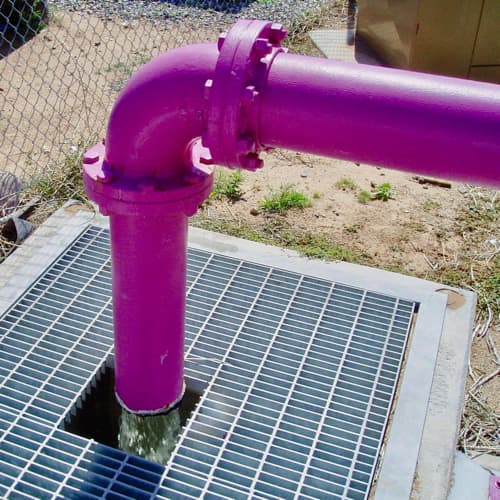AMWUA Blog
BY: Warren TenneyAZ To Permit Purified Wastewater As Drinking Water Source

More than 550 water professionals and researchers from across the country and the world are in the City of Phoenix this week to talk about one subject: reusing wastewater. Recycling highly treated wastewater into a drinking water source is one of the biggest topics at the 32nd Annual WateReuse Symposium . Arizona is among a half dozen states now changing their rules to allow utilities to use purified recycled water as a drinking water source.
Arizona is a pioneer in treating and recycling wastewater. In 1926 Grand Canyon Village built the first wastewater treatment plant used solely to provide “reclaimed” water for beneficial use. The treated wastewater was used to flush toilets, cool boilers and operate steam locomotives. The City of Phoenix built its first wastewater treatment plant at 23rd Avenue in 1931 and used the treated wastewater for farm irrigation in 1932. In 1973, AMWUA negotiated an agreement among five member cities and Arizona Public Service (APS) to provide treated wastewater to the Palo Verde Nuclear Generating Station , which remains the only nuclear power facility to be cooled by recycled wastewater. AMWUA cities now put more than 95 percent of their treated wastewater to beneficial use, such as creating fishing lakes, restoring or creating wetlands, irrigating athletic fields and parks, and storing underground for future use. These beneficial uses of highly treated wastewater are subject to the Arizona Department of Environmental Quality (ADEQ) rules for “reclaimed water.”
Arizona is expected to make several changes to state water policy that will keep the state a leader in treating and recycling wastewater. The new changes are so unique ADEQ created a new title for them: recycled waters rules. The biggest change will end the state’s prohibition against using recycled wastewater as a drinking water source. The change is possible because of advances in technology to purify recycled wastewater and monitor its quality. The new rule would allow Arizona to issue permits for “Advanced Reclaimed Water Treatment Facilities” where highly treated wastewater would be purified to drinking water standards. Drinking water treatment plants would be allowed to use this purified and monitored water as “source” water. Drinking water treatment plants would continue to process this new source water following federal Safe Drinking Water Act requirements.
Texas already has permitted facilities to purify recycled wastewater as a direct source of drinking water. California is expanding in that direction. No Arizona community is working on building an Advanced Reclaimed Water Treatment Facility but ADEQ expects the new rule will spur innovation and stimulate conversations about potable reuse in some communities.
The new rule is among a package of water policy changes that has been vetted at public meetings and is expected to become effective January 2018. It could be years before purified recycled water is used as a drinking supply in Arizona. When it does happen, many experts believe it will be needed in certain water-stretched rural areas of the state. Valley cities will not likely need to take advantage of the changing rules and technology anytime soon. Cities in the Phoenix Metro area have robust water supply portfolios, including river water delivered from the Central Arizona Project and the Salt River Project . The Phoenix area already is putting its reclaimed water to beneficial use.
Many attendees at this week’s WateReuse Symposium have been exploring the technology that would convert recycled water into a drinking water source for a long time. Recycled water is used as a source for drinking water in several countries around the world but hasn’t been widely discussed in this country - until now.
For 48 years, Arizona Municipal Water Users Association has worked to protect our member cities’ ability to provide assured, safe and sustainable water supplies to their communities. For more water information visit amwua.org .
